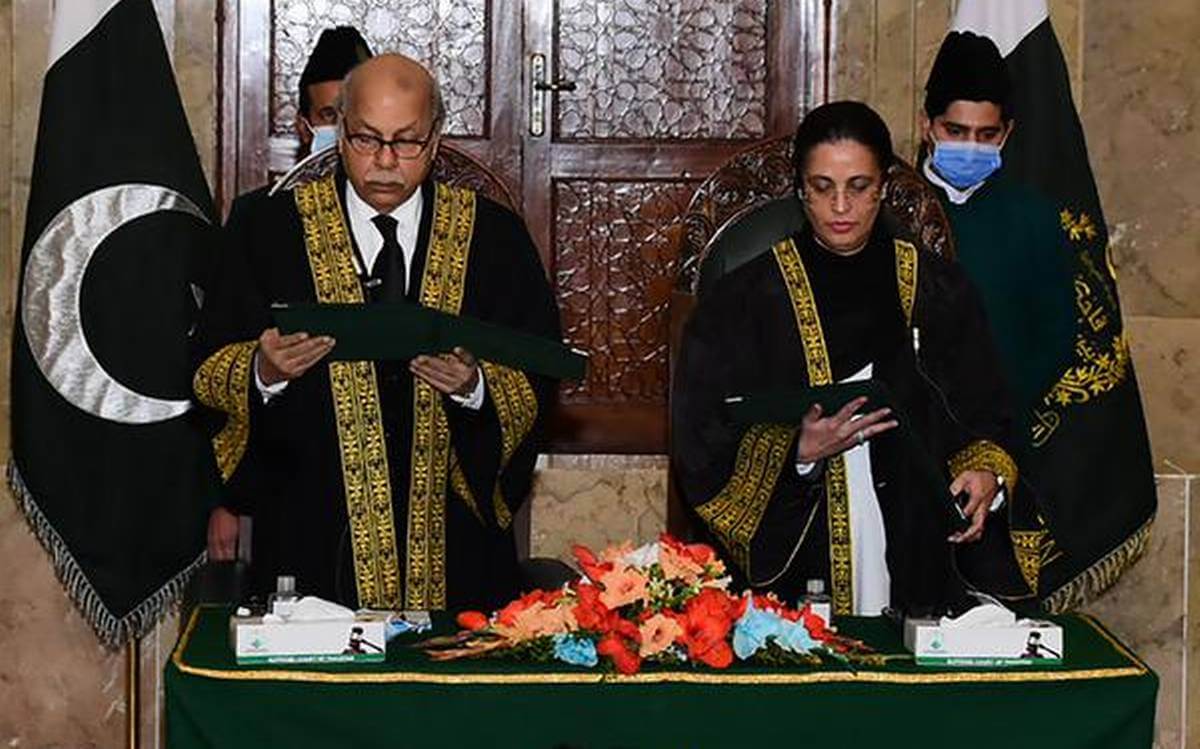Pakistan has appointed its first female Supreme Court judge, Ayesha Malik, who has been credited for taking down several patriarchal legal practices. Her appointment has been celebrated by women’s rights activists and lawyers as a major victory for gender equality in the country.
After her education at Harvard University, Justice Malik previously served as a High Court judge in Lahore. Following the ceremony on Monday, she now sits alongside 16 male colleagues at the Pakistani Apex court. Furthermore, she will also be the senior-most judge of the Supreme Court in January 2030, paving the way for her appointment as Pakistan’s first female Chief Justice.
Her elevation is being looked upon as a milestone in the country’s largely male-dominated judiciary. Nighat Dad, a lawyer and women’s rights activist, said, “It’s a huge step forward.” Another activist celebrated the decision as it raises hope for “women-centric” judicial decisions.
Historic. Justice Ayesha Malik takes oath as the first ever woman judge of Pakistan’s Supreme Court. Also a symbol of how women’s struggles over the past four decades have pushed back patriarchal structures and gender stereotypes.
— Raza Ahmad Rumi (@Razarumi) January 24, 2022
Long way to go but small victories matter. 👏🏽 pic.twitter.com/cI3nUV2Ar0
In the past, Justice Malik has been honoured by gender rights activists for her rulings supporting women. For instance, in 2021, she banned the use of “virginity tests,” an invasive and widely discredited practice on victims of sexual assault or rape. It was previously used by authorities to challenge women’s accusations of gender crimes by casting doubt on their character.
Justice Malik was recommended for replacing the now-retired Justice Mushir Alam by both the Chief Justice of Pakistan, Justice Gulzar Ahmed, and the Chief Justice of the Lahore High Court, Justice Muhammad Qasim Khan. However, the decision to appoint her was met with opposition from the Pakistani Bar Council, which staged a protest earlier this month. Primarily, opponents believe that as Justice Malik was the fourth most senior judge at the Lahore High Court, she was promoted out of turn.
In fact, succumbing to these calls, the nine-member Judicial Commission of Pakistan responsible for her appointment had rejected her promotion last year. However, after four months of controversy, the body, chaired by Chief Justice Ahmed, voted 5-4 in favour of her appointment. Thereafter, a Parliamentary Commission on the Appointment of Superior Judiciary approved the nomination. While declaring its decision, the committee created an exception as they allowed her elevation above three senior Lahore High Court judges since appointing the first woman judge to the top court “would benefit the country.”
Women have often faced a variety of struggles before Pakistan’s largely male-dominated judiciary. Until Justice Malik’s recent promotion, Pakistan was the only South Asian country to never have appointed a female judge to its Supreme Court. Moreover, merely 4% of the High Court judges and 17% of judges overall are women.

